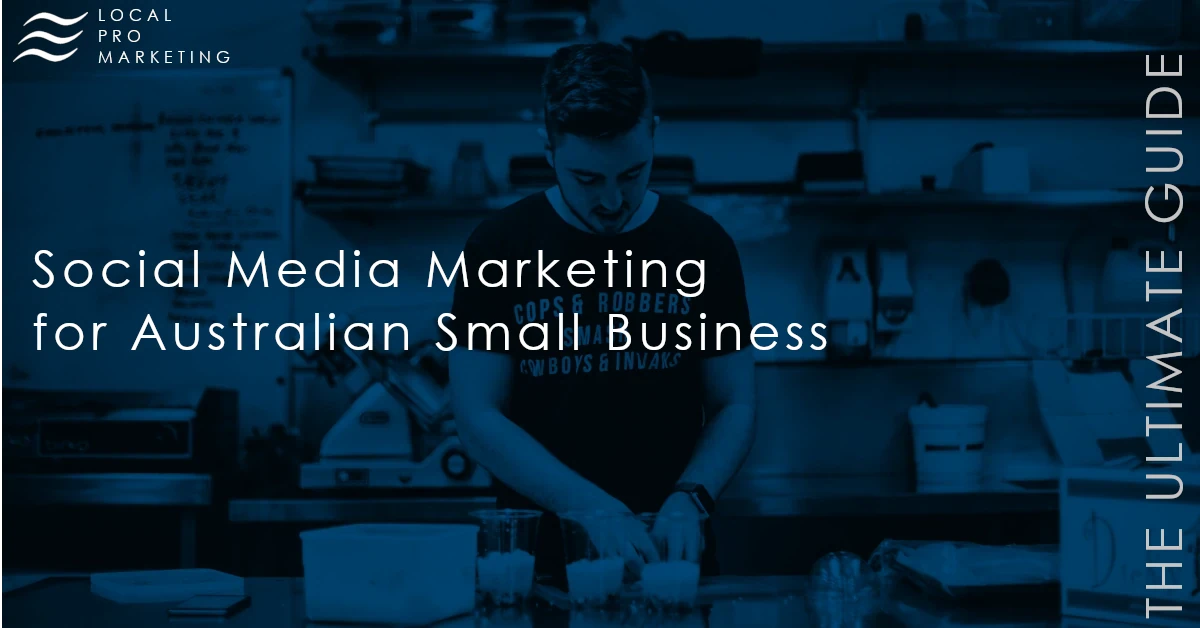Social media has transformed the way businesses market themselves online. Having a social media presence is no longer an option, but a necessity for small businesses. Social media marketing can help small businesses increase brand awareness, reach new customers, and engage with existing ones.
According to a survey by The Manifest, 74% of small businesses are using social media as part of their marketing strategy. In addition, social media advertising is expected to generate over $100 billion in revenue by 2022. These statistics highlight the importance of social media marketing for small businesses in today’s competitive market.
Social media marketing refers to the use of social media platforms to promote a product, service, or brand. This can include a range of activities such as creating and sharing content, engaging with followers, and running targeted advertising campaigns. It allows small businesses to connect with their audience on a more personal level and build relationships with potential customers. By leveraging social media platforms, small businesses can create brand awareness, generate leads, and increase sales.
We will cover the basics of social media marketing, its benefits, and strategies for success. By the end of this guide, you will have a better understanding of how social media marketing can help your small business grow and thrive online.

Benefits of Social Media Marketing
Social media marketing offers a range of benefits for small businesses looking to grow their brand online. Here are some of the key benefits of social media marketing:
Increased brand awareness
Social media allows small businesses to reach a larger audience and increase their brand’s visibility online. By creating and maintaining an active social media presence, small businesses can connect with potential customers in a way that traditional marketing methods cannot.
Cost-effective advertising
Social media platforms offer a range of affordable and effective advertising options that small businesses can use to reach their target audience. By setting their own budget and targeting specific demographics and interests, small businesses can create highly targeted ad campaigns without breaking the bank.
Improved customer engagement
Social media allows small businesses to engage with their audience on a more personal level and build relationships with potential customers. By responding to comments, messages, and reviews, small businesses can show their audience that they care about their customers and are committed to providing high-quality products or services.
Increased website traffic
Social media can drive traffic to a small business’s website by sharing links to blog posts, products, and services. By including a call-to-action in their social media posts, small businesses can encourage their audience to visit their website and learn more about their brand.

Strategies for Social Media Marketing
To successfully leverage social media marketing for their small business, owners need to develop a solid strategy. Here are some key strategies for small businesses to consider:
Define your target audience
Knowing your target audience is crucial for creating a successful social media marketing strategy. By understanding your audience’s demographics, interests, and pain points, you can create content that resonates with them and encourages engagement.
Choose the right platforms
Different social media platforms have different audiences and purposes. Small businesses should choose the platforms that best align with their target audience and business goals. For example, LinkedIn may be more effective for B2B businesses, while Instagram may be more effective for B2C businesses.
Create high-quality content
Content is king in social media marketing. Small businesses should focus on creating high-quality content that provides value to their audience. This can include blog posts, videos, images, and infographics.
Engage with your audience
Social media is a two-way conversation. Small businesses should actively engage with their audience by responding to comments, messages, and reviews. This helps to build relationships with potential customers and fosters a sense of community around the brand.
Monitor and analyze your results
It’s important for small businesses to track their social media marketing efforts and analyze the results. By monitoring metrics such as engagement, reach, and conversion rates, small businesses can refine their strategy and improve their performance over time.

Common Social Media Marketing Mistakes to Avoid
While social media marketing can be a powerful tool for small businesses, there are also common mistakes that can hinder their success. Here are some common social media marketing mistakes to avoid:
Not having a clear strategy
Without a clear social media marketing strategy, small businesses can end up posting content that doesn’t resonate with their audience or align with their business goals. A solid strategy should include goals, target audience, content plan, and metrics for tracking success.
Inconsistency in posting
Inconsistency in posting can lead to a lack of engagement and a decline in followers. Small businesses should aim to post consistently and at times when their target audience is most active on social media.
Over-promotion
Over-promotion can lead to a decline in engagement and a negative perception of the brand. Small businesses should focus on creating high-quality, value-driven content that provides their audience with useful information or entertainment.
Ignoring customer feedback
Ignoring customer feedback can damage a brand’s reputation and discourage potential customers from engaging with the brand. Small businesses should actively respond to comments, messages, and reviews, and use customer feedback to improve their products or services.
Failure to adapt to platform changes
Social media platforms are constantly evolving, and small businesses should adapt their strategy to reflect changes in algorithms, features, and trends. Failure to adapt can lead to a decline in engagement and reach.

Social media marketing is a crucial tool for small businesses looking to grow their brand online. By creating a solid social media marketing strategy, small businesses can effectively reach their target audience, increase brand awareness, and drive website traffic. However, it’s important to avoid common mistakes such as lack of strategy, inconsistency in posting, over-promotion, ignoring customer feedback, and failure to adapt to platform changes.
To succeed in social media marketing, small businesses should focus on creating high-quality content that provides value to their audience, engaging with their audience on a personal level, and monitoring their results to refine their strategy over time. By leveraging the power of social media, small businesses can level the playing field with larger competitors and build a strong brand online.
Thanks for taking the time to read this blog post on Social Media Marketing. Our team at Local Pro Marketing is committed to providing valuable insights and strategies to help businesses succeed in the ever-evolving world of social media. We hope you found this post helpful and informative. Don’t hesitate to reach out to us if you have any questions or leave a comment.









